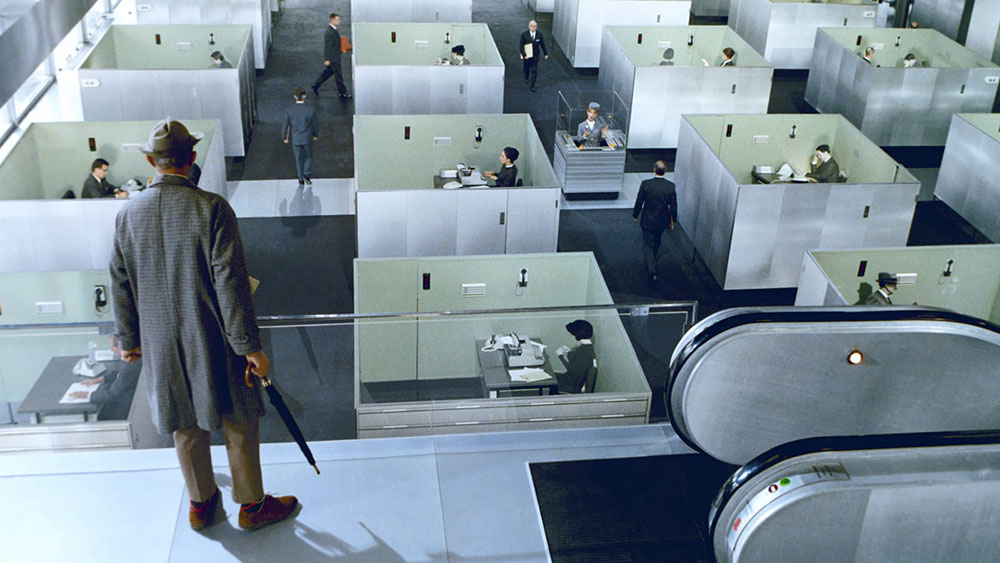Chief among the innumerable, inexhaustible joys of Jacques Tati’s Playtime is a communal spirit of social resistance. As his unsettlingly pristine canvas, Tati presents 1960s Paris as a geometric monstrosity of glass, steel and plaster. Here he pits a group of gauche American tourists and his own signature character, the hapless M. Hulot, against a series of dehumanizing planes: an airport, a highway, a futuristic trade show.
After Tati committed his own small fortune to the construction of several massive studio sets (a decision which would bankrupt him after the film failed to find a contemporary audience), he gleefully spends the majority of the film mocking, disfiguring, and ultimately destroying them as Hulot and the tourists festively repurpose the city. With simultaneous visual and aural gags layered over one another in each frame, Tati’s mise-en-scène complicitly provides opportunities for audiences to estrange themselves from the antiseptic metropolis.
As thousands of Americans have recently entrenched themselves in public spaces in order to push back against the financial institutions and global corporations that have fabricated a constellation of ugly realities for working people, it’s interesting, and possibly instructive, to note the optimism at the heart of Playtime. Despite the indignation of Tati’s thesis, the prevailing tone is bemused rather than enraged. More screen time is dedicated to the jouissance of a public reclaiming urban space than to the oppressive rigidity of the modern city. Ultimately, Tati posits an inevitable victory for disheveled humanity in the face of its base desires for confinement and submission. Without insisting too heavily on specific ideological overlap, it’s safe to conclude that Tati’s film and the various Occupy movements share the idea that human beings continue to matter in a world shaped by massive institutional interests.



